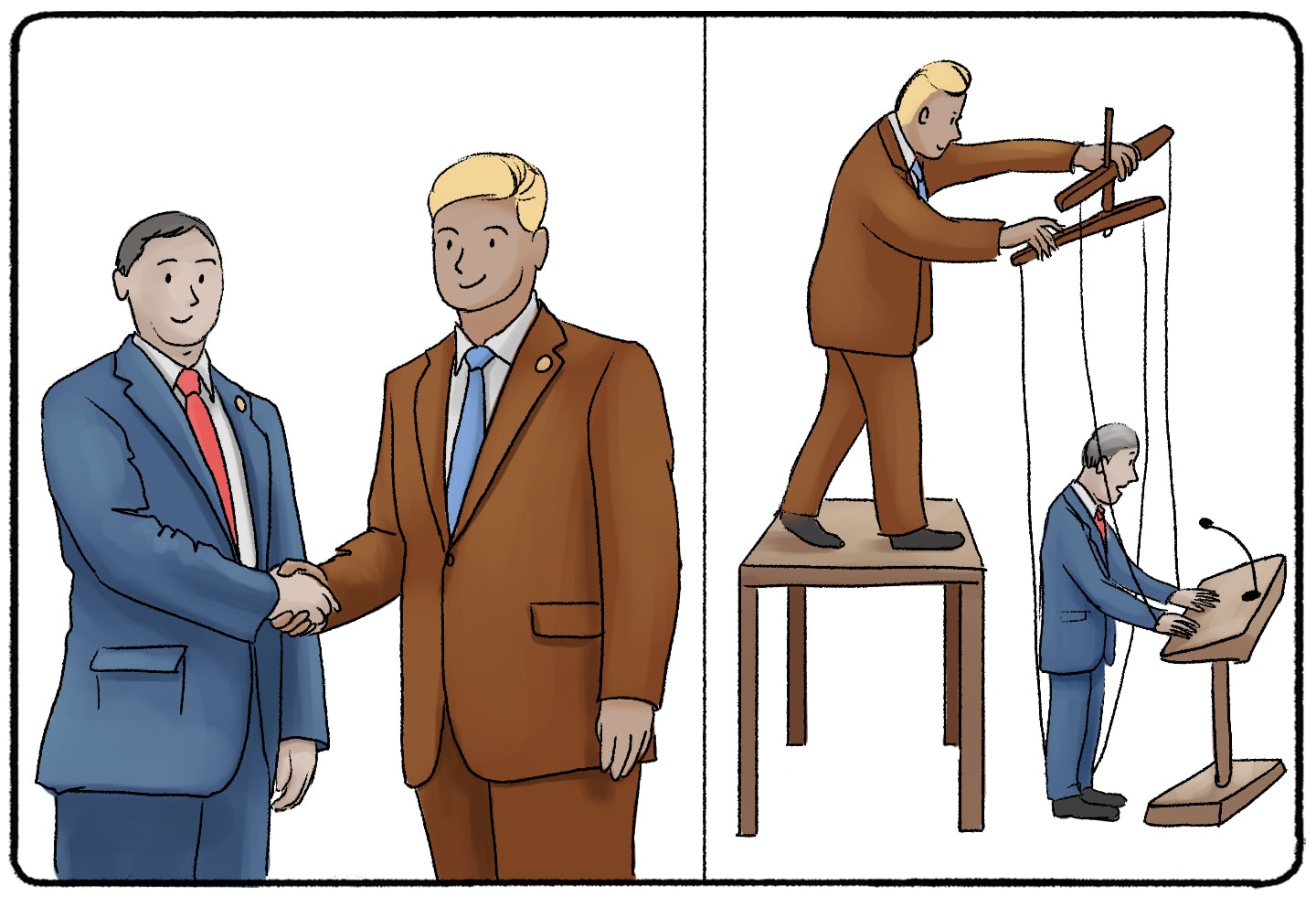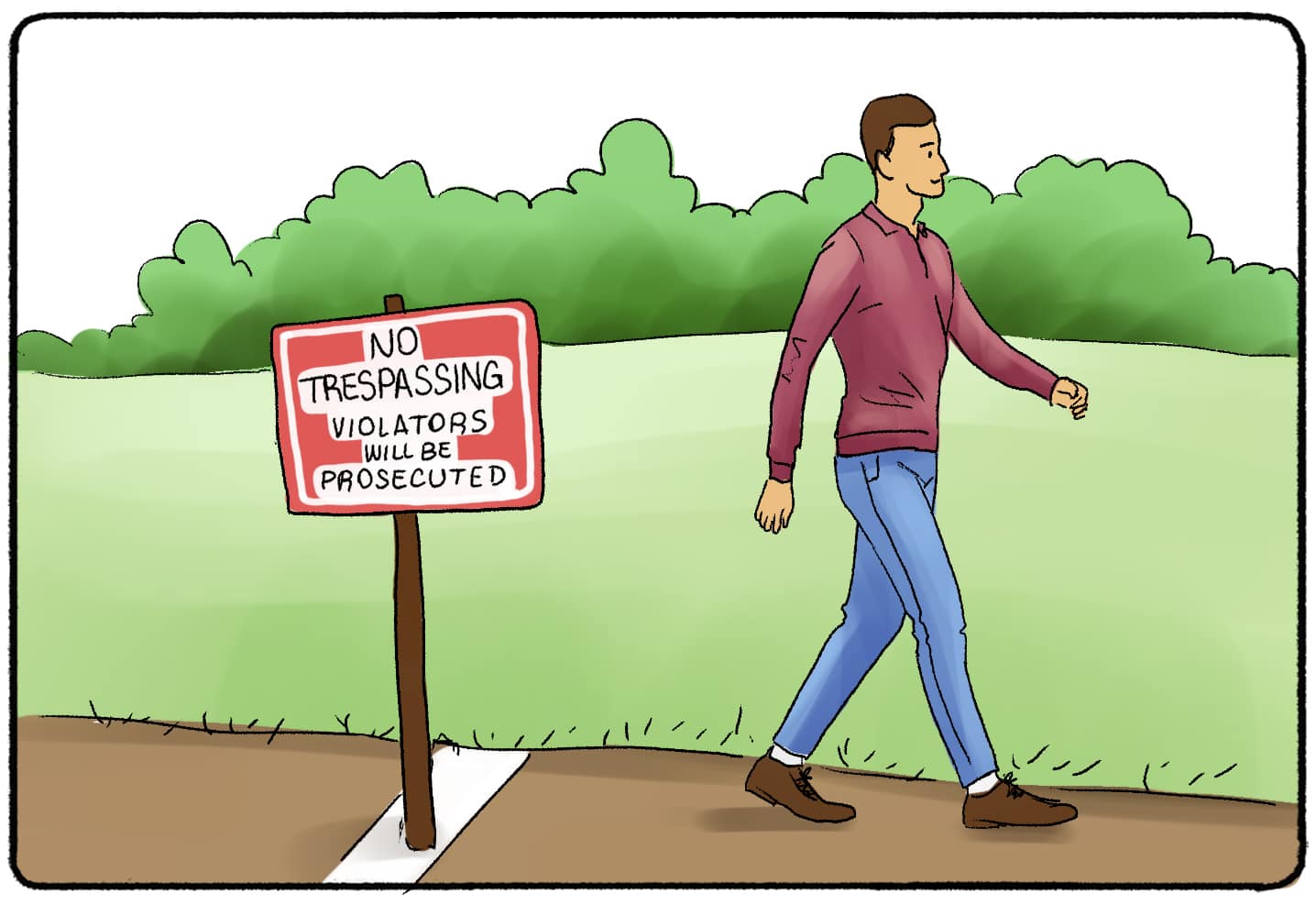Could you pick a psychopath or a narcissist out of a lineup of strangers?
You probably couldn’t! Your average psychopath isn’t foaming at the mouth, wielding a bloody ax. Certain behaviors displayed by narcissists and psychopaths may even be overlooked, because they’re charming, funny, or successful. Before I dive into the different behaviors of a psychopath, I want to define the different types of “behaviors” that psychologists look out for and define. Not all of these behaviors are obvious. When you understand the difference between overt and covert behaviors, you will see that there is more to your average psychopath than meets the eye.
What Is The Difference Between Overt and Covert Behavior?
The difference between overt and covert behaviors lies in how visible they are to strangers. While overt behaviors may be picked up by strangers, covert behaviors are only noticeable to close friends, family, or a person themselves. Covert answers the “why” behind overt’s “what.”
What Does "Overt Behavior" Mean?
Overt behaviors are the ones that you can observe from a distance. The way someone walks or how often they blink all fall under the umbrella of overt behavior. Think of a celebrity. By watching them, you may be able to identify a long list of overt behaviors.
Observations about a celebrity, a boss, or a friend can tell you a lot about them, but we all know there is more to the story than overt behaviors. What happens “on the outside” doesn’t always match “on the inside.”
What Does "Covert Behavior" Mean?
Covert behaviors are easy to observe, but they often directly lead to observable actions. Think of the way that you would describe your behavior. Because you know yourself well, you can describe the way that you think, dream, or reason with yourself. These are covert behaviors.
Covert behaviors are often the key to understanding someone’s intentions, motives, or inner workings. Let’s say you are walking through your neighborhood and see someone running, at full speed, past you. That is an overt behavior. But why are they running? Maybe they believe that someone is chasing them - this belief is a covert behavior. Maybe they believe that full sprints throughout their run will help them lose weight - this reasoning also counts as a covert behavior. Or they are late for the bus, and believe that if they are late, they will be fired from their job.
All of these covert behaviors could explain the person’s actions, but you may not be able to identify these behaviors at first glance. Context could help you: the distance to the bus stop or any people that you see running toward the person could give you a hint at the person’s covert behavior but are not guaranteed to fully explain why that person is running. Other overt behaviors, including the expression on the runner’s face or the clothes they have chosen to wear, can also help.
Ignoring Covert Behaviors
We may misjudge someone’s covert behaviors based on who they are, what they look like, or our personal feelings about the person. If you are in love with a psychopath, you are unlikely to identify all of the covert behaviors that qualify them as a psychopath. You may be “blind” to some of their toxic traits, or instead focus on the traits that appeal to your narrative about the person.

Psychopaths display many favorable overt behaviors. They’re charming, convincing, and may even show some interest in you. But underneath certain overt behaviors are covert behaviors. As I go through a list of covert behaviors displayed by psychopaths, you will better understand why these people can get away with so much.
Overt and Covert Behaviors of Psychopaths
Lying
Overt Behavior: Lying (In a Convincing Way)
Covert Behavior: Getting Pleasure Out Of It
If you are interacting directly with a psychopath, you may not even catch wind of their pathological lies until you have already been (emotionally) hurt by them. Psychopaths aren’t just frequent liars - they are skilled liars. Once a psychopath has you under their spell, you may not just neglect to see their lies. You may also explain away their lies. You must understand that psychopaths aren’t lying for unselfish reasons. They get pleasure out of tricking people, even if that means hurting them. This pleasure fuels the idea that they are special, “better than,” or smart. Psychopaths act out to fight back against feelings of self-loathing or a desire to be special. Unfortunately, this repeatedly occurs at the expense of others.
Singling People Out
Overt Behavior: Telling someone they are special
Covert Behavior: Seeing how loyal someone can be to them
When NXIVM cult leader Keith Raniere was a boy, his mother noticed that he had a specific script that he used with multiple girls at school. He told them that they were special. This word could continue to come up again and again as girlfriends and cult followers described their relationship with Keith. As he was telling this to multiple women at once, he was obviously lying. His choice to call a woman special would often lead to asking her for “special favors,” testing their loyalty as they spent more money on Raniere, devoted more of their life to Rainere, and even participated in sex trafficking for Raniere.

A psychopath is not telling you that you are special because they believe that you are special. They have other motives. They are using that language to see how special you think they are.
Apologizing
Overt Behavior: Saying ‘sorry’ when you ask for an apology
Covert Behavior: Not being sorry for what they have done
The third stage in the “Cycle of Abuse” is reconciliation. An abuser, narcissist, or psychopath may tell a victim that they are sorry. They may even make grandiose gestures, buying expensive gifts in an attempt to patch up the relationship. But they are not making these gestures because they are truly sorry. Experts have identified the “cycle” of abuse because it continues in a cycle. After a period of calm, the cycle begins again, and the victim is hurt, threatened, lied to, etc.
On the surface, excessive apologies from someone appear to be a sign of empathy or remorse. Underneath, their covert behaviors are much more sinister. They are acting to keep you under their spell, and ultimately benefit themselves.
Gaslighting
Overt Behavior: Telling you that you’re wrong
Covert Behavior: Brainwashing you to believe that they are right
At best, gaslighting is annoying. At worst, it is an attempt to completely brainwash you and make you doubt your sanity. Gaslighting is a process in which someone tries to get you to question your feelings, thoughts, and memories. By doing so, you may be more likely to take the other person’s side. If this continues to happen, and you continue to “fall for it,” you may find yourself constantly questioning your reality and the way that you see the world.
This is a powerful tool used by abusers, cult leaders, and narcissists. If you take what the person says at face value, you are more likely to question yourself and give into the other person’s “point of view.” If you can identify someone’s behavior as gaslighting, you will be more likely to step away with confidence and see the person for who they really are.
Breaking the Rules
Overt Behavior: “Going against the grain”
Covert Behavior: Having no conscience or sense of morality
Breaking the rules can be a thrilling experience. Watching someone go against the grain can appear to be charming, noble, or seductive. There are many cases of people who have broken the law for the good of humanity.

But this is where covert behaviors really make the difference between a person who is “normal” and a person who is a psychopath. Protestors throughout history who broke the law by marrying someone they love or making a political statement are doing so to fight for progress, equality, and other honorable values. A psychopath breaking the law has none of these things in mind. They are breaking the law because they believe they are above the law.
Examples of Questioning Overt vs Covert Behavior
Is someone in your life displaying these behaviors? It's okay to question whether certain behaviors are normal or actually a sign of covert narcissism. You can reach out to friends, family, mental health professionals, or even Reddit for a second opinion.
Take this post from the NarcissisticAbuse subreddit:
"Recently, my partner reached a success at work (like closing a deal) with two other coworkers. Normally, this would be a huge accomplishment. However, my partner was being very moody about it. When a friend was trying to help congratulate them, all they could talk about is how the success felt “cheap” because it wasn’t solely theirs and that a lot of credit was due to the other two. No matter how much the friend and I tried to validate their success, they could not take the compliment.
Is this covert behavior? Has anyone encountered this with an N, where they can’t enjoy or share success with others?"
A user responded by saying,
"Yes. My nex would have wanted me to sign every single picture in our photography art book project so everyone knew who’s the author of every single photo. He also deeply suffered when I achieved anything and he wouldn’t say a word about it. They are unable to cooperate. Everything’s a competition for them."
Covert Behaviors Are Subtle
In another post on the NarcissisticAbuse subreddit, a man lays out all the covert behaviors that his girlfriend displays. This behaviors include:
- Assuming the worst in people
- Not having any close friends
- Inability to be happy for others
- Not allowing others to have an opinion
- Inability to be wrong
- Implementing the silent treatment
When a user commented that this behavior sounded familiar, the OP responded with his process of identifying covert behaviors.
He said, "The sublety is what gets you. For years I had felt something was wrong, but she didn't cheat, didn't lie, didn't scream or become violent. I felt the problem was me and I thought I kept screwing up and I was just a bad boyfriend and selfish. I kept giving up boundaries slowly over the first year and then by year 2 I was sucked in. It wasn't until I saw a youtube video (that she sent me lol) on covert narcissism that I realized: holy crap! That is her! This is what I've been experiencing. It was like someone was describing her perfectly. They use guilt to tie you up like a marionette, forever being a victim for attention and to keep you feeling bad for them."
Question Someone’s Motives
If you have questions about overt vs covert behavior or think you may be dealing with a narcissist, reach out to people in your community.
This information should not make you paranoid but should give you some insight into how everyday, normal behaviors can be misconstrued. By ignoring a person’s motives or covert behaviors, we allow psychopaths and narcissists to continue hurting people and putting people at risk. Consider someone’s motives, and listen to your gut feelings. You may just find yourself avoiding contact with a very dangerous person.



